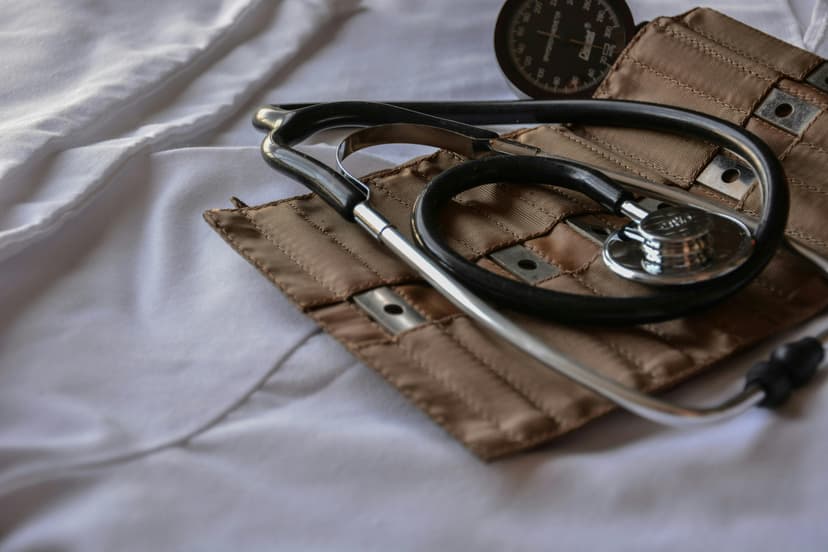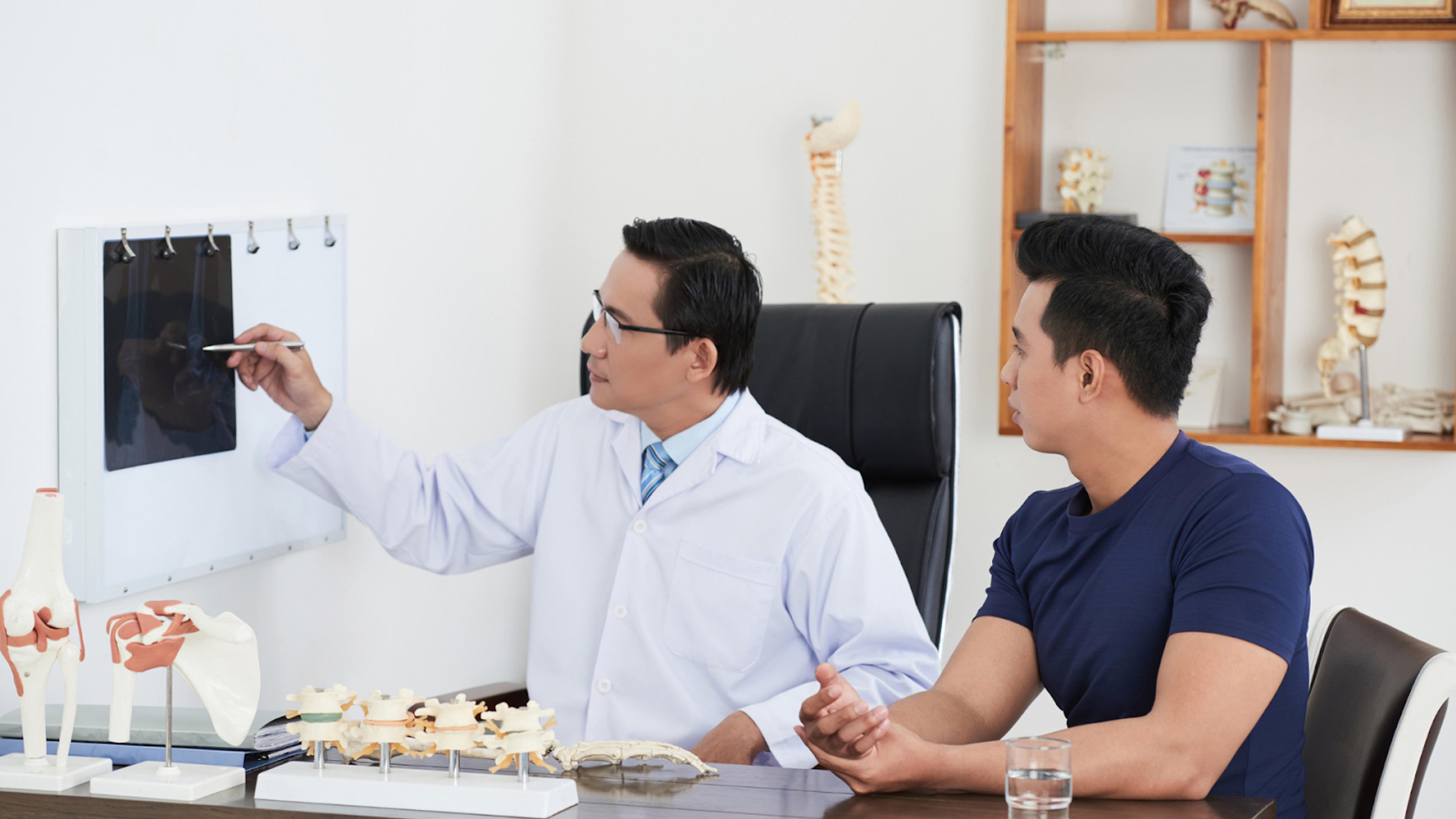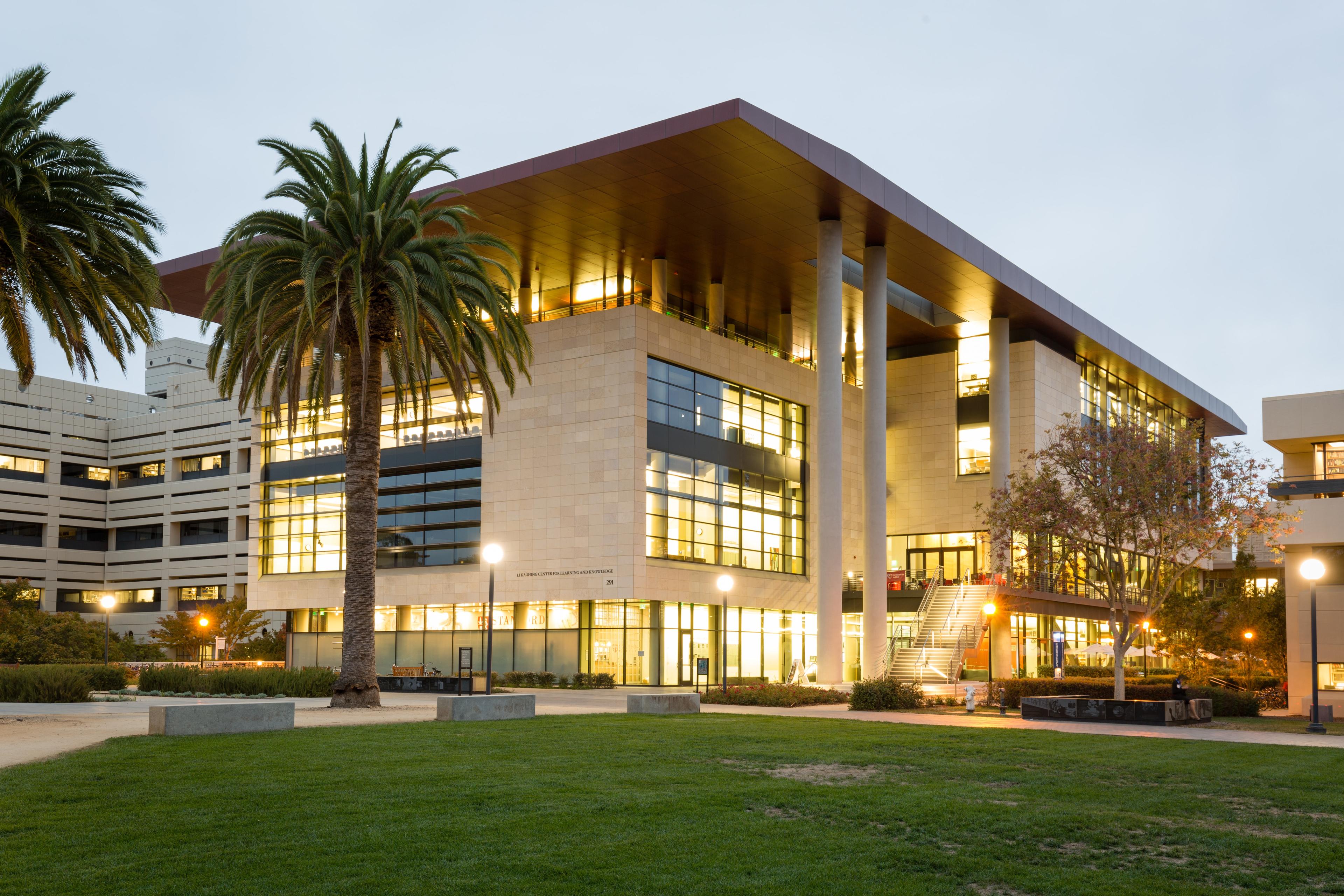6, 7 and 8-Year Accelerated BS/MD Programs (2026)
Explore the full list of BS/MD programs for 2026. Learn about accelerated medical pathways, admission requirements, and top schools offering six-, seven-, and eight-year BS/MD programs.
Posted January 12, 2026

Join a free event
Learn from top coaches and industry experts in live, interactive sessions you can join for free.
Table of Contents
BS/MD programs provide a direct pathway from undergraduate education to medical school, allowing students to complete both degrees in a shorter timeframe. These programs streamline medical school training, reducing the uncertainty of the traditional medical school application process.
Accelerated medical pathway programs, such as accelerated BS/MD programs, further shorten the duration, enabling students to enter residency programs sooner. While most medical students complete four years of undergraduate studies before attending medical school, some BS/MD programs integrate the curriculum to allow for completion in six or seven years. These programs demand high academic performance, a strong commitment to medicine, and the ability to handle a rigorous course load.
This article provides a full list of BS/MD programs in the U.S., categorized by length, along with admission requirements and key details for each program.
What is an Accelerated BS/MD Program?
An accelerated BS/MD program is a structured medical education pathway that allows students to earn both a Bachelor of Science (BS) and a Doctor of Medicine (MD) in a condensed timeframe, typically six or seven years instead of the traditional eight. These programs are designed for high-achieving students who are committed to becoming medical professionals early in their academic careers.
Unlike the conventional pre-med route, where students spend four years in undergraduate education before applying to medical school separately, an accelerated BS/MD program integrates undergraduate studies with medical school training. This accelerated program allows students to start their medical education sooner and enter residency programs at a younger age.
How Do Accelerated BS/MD Programs Work?
1. Six-Year BS/MD Programs
- Students complete undergraduate education in two or three years instead of four.
- The program is fast-paced and academically demanding, requiring students to take heavy course loads, often including summer sessions.
- Once undergraduate requirements are met, students transition directly into a three-year MD program at the partnered medical college.
- This format allows students to enter residency programs two years earlier than traditional medical students.
- Example: University of Missouri-Kansas City (UMKC) School of Medicine follows a six-year structure, with students engaging in early patient care experiences from their first year.
2. Seven-Year BS/MD Programs
- Students spend three years in undergraduate education instead of four.
- Unlike six-year programs, students still complete a full four-year medical school curriculum.
- The undergraduate phase is intensive, often requiring students to take advanced science classes early.
- Some programs, such as the George Washington University School of Medicine and Health Sciences, allow students to complete undergraduate studies at an affiliated university before moving to medical school.
- This track offers a slightly more flexible schedule compared to six-year programs while still reducing overall education time by a year.
Features of Accelerated BS/MD Programs
| Feature | Six-Year Programs | Seven-Year Programs |
|---|---|---|
| Undergraduate Duration | 2-3 years | 3 years |
| Medical School Duration | 3 years | 4 years |
| Course Load | More intense, often including summers | High workload, but slightly more flexibility |
| Clinical Exposure | Starts earlier in the undergraduate phase | Introduced in the later undergraduate years |
| Graduation Timeline | Medical degree awarded two years earlier than the traditional path | One year earlier than the standard track |
Benefits of an Accelerated Medical Pathway
1. Faster Entry Into Residency Programs
Students in accelerated BS/MD programs enter the National Resident Matching Program (NRMP) and begin their residency training one to two years earlier than those in traditional medical school tracks. This early entry allows them to start their medical careers sooner, gaining hands-on experience while peers in standard programs are still completing their undergraduate education. For students pursuing primary care or specialized medical specialties, this can be an advantage in securing competitive residency spots. Medical schools with family medicine accelerated tracks often emphasize earlier clinical exposure, helping students build the skills needed for patient care faster. Additionally, the family medicine accelerated track is designed to enhance primary care by encouraging medical students to pursue a career in family medicine, particularly in underserved communities, and allows them to complete their training in just three years.
2. Reduced Living Expenses
Completing an MD program in six or seven years instead of eight can significantly reduce tuition costs, housing expenses, and overall educational debt. Medical students often face high expenses, including textbooks, lab fees, and clinical training costs. By shaving off one or two years from their academic journey, students in accelerated curricula can enter the workforce sooner and start earning a physician’s salary earlier. Since many medical schools do not provide financial aid for all four years of medical education, students in accelerated programs may also save on private loans or minimize the years they rely on financial aid.
3. Less Competitive Stress
Traditional medical school applicants must maintain a strong undergraduate GPA, participate in extensive extracurricular activities, perform well on the MCAT, and submit competitive applications to multiple medical colleges. Accelerated BS/MD students bypass this stressful application process since they are already accepted into a school of medicine upon entry. Most programs have academic and professional standards that students must meet to remain in the program, but the reduced pressure of applying to med school separately allows students to focus on academic performance and clinical preparation.
4. Early Exposure to Clinical Experience
Many accelerated pathway programs introduce patient care experiences and medical training as early as the undergraduate years. In some programs, students shadow physicians in hospitals, participate in early research, or complete rotations in various medical specialties before formally beginning medical school coursework. For example, students in NYU Grossman School of Medicine’s three-year MD program receive immediate training in primary care and other clinical settings, helping them develop hands-on experience in real-world medical environments.
Read:
- The Best Medical School Extracurriculars for Admission
- The 10 Best Undergraduate Majors for Medical School
- What GPA Do You Need to Get Into Medical School?
- Medical School Requirements: What You Need to Get In
Challenges of Accelerated BS/MD Programs
1. High Academic and Professional Standards
Students must maintain a high GPA, perform well in science classes, and meet all academic performance requirements to stay in the program. Unlike traditional undergraduate students, who may have room to improve their grades over four years, accelerated BS/MD students must consistently excel from the beginning. Many programs require students to meet certain GPA thresholds in basic science courses and complete medical coursework with successful completion of exams before advancing to the MD program phase. Falling below these standards can result in dismissal from the program.
2. Intensive Coursework
Since undergraduate education is condensed into two or three years, students in accelerated programs must take a heavier course load than their traditional pre-med peers. Many programs require students to complete coursework year-round, including summers, with little free time for electives or non-medical interests. This accelerated schedule can be overwhelming, particularly for students who struggle with time management. The pace of learning in accelerated curricula demands that students absorb complex medical education concepts quickly while balancing clinical experiences and laboratory work.
3. Less Flexibility in Career Choices
One of the biggest considerations of entering an accelerated BS/MD program is that students must commit to medicine early—often as high school seniors. Unlike traditional undergraduates who have time to explore different majors and careers, BS/MD students are locked into the directed pathway to medicine. For students who later realize they are interested in research, biotechnology, or another field outside of medicine, leaving the program may result in losing completed credits or delaying graduation. Additionally, those who are unsure about which medical specialties they want to pursue may feel restricted by the structured nature of such programs.
Full List of BS/MD Programs (2026)
6-Year BS/MD Programs Overview
| University | Medical School | Location |
|---|---|---|
| University of Missouri-Kansas City | UMKC School of Medicine | Missouri |
| Howard University | Howard University College of Medicine | Washington, D.C. |
| Donald and Barbara Zucker School of Medicine | Hofstra/Northwell | New York |
List of 6-Year BS/MD Programs
- University of Missouri-Kansas City (UMKC) School of Medicine – One of the most well-known six-year BS/MD programs, UMKC integrates clinical experience from the first year. Students complete undergraduate and medical coursework simultaneously, allowing for an early transition into patient care.
- Howard University College of Medicine – A highly structured program that places a strong emphasis on serving underrepresented communities in medicine. Students complete an accelerated pre-med curriculum before transitioning into medical school.
- Donald and Barbara Zucker School of Medicine at Hofstra/Northwell – Offers early clinical exposure and a problem-based learning curriculum. The program is designed for students with a strong commitment to primary care or research.
7-Year BS/MD Programs Overview
| University | Medical School | Location |
|---|---|---|
| The George Washington University | GW School of Medicine and Health Sciences | Washington, D.C. |
| Rutgers University | Rutgers New Jersey Medical School | New Jersey |
| Boston University | BU School of Medicine | Massachusetts |
| University of Miami | Leonard M. Miller School of Medicine | Florida |
| Penn State | Sidney Kimmel Medical College at Thomas Jefferson University | Pennsylvania |
| University of South Florida | Morsani College of Medicine | Florida |
| Medical College of Georgia | Augusta University | Georgia |
| Indiana University | IU School of Medicine | Indiana |
| University of Illinois | College of Medicine | Illinois |
| University of Toledo | College of Medicine and Life Sciences | Ohio |
List of 7-Year BS/MD Programs
- The George Washington University School of Medicine and Health Sciences – One of the most prestigious seven-year programs, this track allows students to complete their undergraduate education at GW’s Columbian College before moving to the medical school. The program emphasizes leadership and global health.
- Rutgers New Jersey Medical School – Students complete three years at Rutgers before joining the medical school. The program offers an accelerated but comprehensive foundation in medical sciences.
- Boston University School of Medicine – BU’s Seven-Year Liberal Arts/Medical Education Program combines a strong liberal arts education with early exposure to medical coursework. Students must maintain a competitive GPA to remain in the program.
- University of Miami Leonard M. Miller School of Medicine – This program allows students to complete three years of undergraduate coursework at the University of Miami before moving on to the medical school. Early clinical experiences and research opportunities are available.
- Penn State and Sidney Kimmel Medical College at Thomas Jefferson University – This program partners Penn State with Sidney Kimmel Medical College to offer a structured seven-year pathway. Students focus on core sciences in the first three years before transitioning to medical training.
- University of South Florida Morsani College of Medicine – Designed for highly motivated students, this program emphasizes early clinical exposure and research. Students must meet high academic standards throughout the undergraduate phase.
- Medical College of Georgia at Augusta University – Students spend three years in undergraduate studies before moving on to the medical school. The program is known for its strong emphasis on primary care.
- Indiana University School of Medicine – Indiana University offers a structured program with opportunities for research and hands-on patient care during undergraduate years.
- University of Illinois College of Medicine – A well-established program that provides a direct pathway for students with a strong commitment to medicine. Students complete three years of undergraduate coursework before starting medical training.
- University of Toledo College of Medicine and Life Sciences – This program offers both seven- and eight-year options, giving students flexibility in their training timeline. Students participate in research and clinical experiences from an early stage.
8-Year BS/MD Programs Overview
| University | Medical School | Location |
|---|---|---|
| NYU Grossman School | NYU Grossman School of Medicine | New York |
| Virginia Commonwealth University | VCU School of Medicine | Virginia |
| Case Western Reserve University | CWRU School of Medicine | Ohio |
| University of Pittsburgh | School of Medicine | Pennsylvania |
| Drexel University | College of Medicine | Pennsylvania |
| Baylor College of Medicine | Baylor College of Medicine | Texas |
| Brown University | Warren Alpert Medical School | Rhode Island |
| Florida Atlantic University | Charles E. Schmidt College of Medicine | Florida |
| University of Rochester | School of Medicine and Dentistry | New York |
| University of Connecticut | School of Medicine | Connecticut |
List of 8-Year BS/MD Programs
- NYU Grossman School of Medicine – One of the most competitive BS/MD programs, NYU Grossman offers a research-intensive curriculum with early clinical exposure. The program prepares students for highly selective residency placements.
- Virginia Commonwealth University (VCU) School of Medicine – VCU’s Guaranteed Admission Program provides a structured eight-year track, ensuring a smooth transition from undergraduate to medical training.
- Case Western Reserve University School of Medicine – Case Western’s Pre-Professional Scholars Program allows students to explore research and clinical opportunities while completing a full undergraduate curriculum before medical school.
- University of Pittsburgh School of Medicine – Pittsburgh’s Guaranteed Admission Program (GAP) provides a highly structured pathway for students who meet rigorous academic and professional development milestones.
- Drexel University College of Medicine – Drexel offers a strong focus on early patient care and interprofessional education, integrating undergraduate coursework with medical training.
- Baylor College of Medicine – Baylor’s program emphasizes research, primary care, and leadership in healthcare. The medical school is highly ranked, making this a competitive option.
- Brown University Warren Alpert Medical School – Brown’s Program in Liberal Medical Education (PLME) is unique in allowing students flexibility in their undergraduate studies while maintaining a direct path to medical school.
- Florida Atlantic University Charles E. Schmidt College of Medicine – A smaller, highly selective program designed for students committed to practicing medicine in Florida.
- University of Rochester School of Medicine and Dentistry – Offers a broad, research-oriented education with a strong clinical focus. Students have access to early patient care experiences.
- University of Connecticut School of Medicine – This program provides a strong foundation in medical sciences while allowing students to explore interests outside of medicine during their undergraduate years.
Note: Each program has unique requirements, including test scores, GPA expectations, and extracurricular involvement.
Application Process for BS/MD Programs
Requirements for Admission
Students accepted into these programs typically have:
- High GPAs and Test Scores – Competitive programs require top performance in science classes and standardized tests.
- Strong Extracurricular Activities – Medical-related experiences such as research, volunteering, and clinical exposure are highly valued.
- Personal Statements and Interviews – Admissions committees assess motivation for pursuing medicine through written applications and interviews.
Selection Criteria
Medical schools evaluate students based on:
- Commitment to Medicine – Demonstrated interest through shadowing experiences, community service, and research.
- Academic Performance – High school and early undergraduate coursework must meet rigorous academic standards.
- Professional Development – Candidates must show potential for success in a demanding medical education environment.
Medical School Training and Residency Pathways
How Accelerated Programs Affect Residency Placement
Students who complete BS/MD programs enter the National Resident Matching Program (NRMP) earlier than traditional applicants. Many programs emphasize primary care and patient care experiences, preparing students for residency training in medical specialties such as family medicine, internal medicine, and pediatrics.
Transition to Residency
By the final year of medical school, students participate in clinical rotations and prepare for residency applications. Some institutions, such as NYU Grossman School of Medicine, offer a three-year MD track to further accelerate training. Many students enter family medicine accelerated tracks to gain early hands-on experience.
5 Expert Tips for Succeeding in an Accelerated BS/MD Program
1. Approach the First Year Like Medical School
The transition into an accelerated BS/MD program is immediate. Students should adopt study techniques used by medical students, such as active recall and spaced repetition, rather than passive reading. Medical textbooks, not standard undergraduate materials, should be used for core science subjects. Connecting with upper-level BS/MD students for study strategies can also provide an advantage.
2. Use Time Blocking for Efficiency
With a heavy course load, time management is essential. Fixed commitments like labs and rotations should be scheduled first, with study sessions structured around them. Study time should be divided into review and active learning to maximize retention. Low-energy periods in the day should be reserved for lighter tasks like flashcard reviews.
3. Maintain a GPA Above the Minimum Requirement
Meeting the program’s GPA threshold isn’t enough for competitive residency placements. High-impact courses like organic chemistry and physics should be prioritized, and easier electives should be used to maintain a GPA buffer. Pre-studying complex subjects like biochemistry can prevent sudden drops in performance.
4. Gain Clinical and Research Experience Early
Clinical exposure and research should start in the first year, not later in the program. Securing research positions with faculty, volunteering in primary care settings, and joining medical student organizations can provide a competitive edge. Residency programs favor candidates with a combination of clinical work, research, and leadership.
5. Build Faculty Relationships Early
Mentorship from medical school faculty is key to career guidance and strong recommendation letters. Students should engage with faculty at events, seek an advisor within the medical school, and establish relationships that will be valuable for residency applications.
Final Thoughts
Accelerated BS/MD programs offer a direct and structured path into medicine, but they require a serious commitment to academic excellence, time management, and professional development. While these programs provide the benefit of early entry into residency and reduced educational costs, they also come with intense coursework and limited flexibility. Choosing the right program depends on individual learning styles, career goals, and readiness for an accelerated curriculum. Students who thrive in these programs are those who are disciplined, adaptable, and passionate about medicine from the start. Whether pursuing a six-, seven-, or eight-year track, success in a BS/MD program requires more than just strong grades—it demands resilience, a proactive approach to learning, and early engagement in research and clinical experiences.
Applying to BS/MD programs is highly competitive. A strong application requires outstanding academics, compelling essays, research experience, and a well-prepared interview strategy. Working with a medical school admissions coach can give you the edge you need to stand out. More so, check out medical school bootcamps and free events for more helpful insights!
See: The 10 Highest-Rated Med School Coaches
Read these next:
- Medical School Acceptance Rates, GPA, and MCAT Scores of the Top 15 Programs
- The Best 50+ Free Resources for the MCAT Exam
- How to Write a Powerful Personal Statement for Medical School
- What GPA Do You Need to Get Into Medical School?
- How Long is Medical School – A Year-by-Year Breakdown
FAQs
What are BS/MD programs?
- BS/MD programs are combined degree programs that allow high school students to secure conditional or guaranteed admission into medical school while completing their undergraduate education. Instead of applying separately to medical school after four years of college, students transition directly into the medical program upon meeting the academic and professional requirements of their undergraduate studies. These programs typically range from six to eight years in length and offer a structured, accelerated pathway for students committed to a career in medicine.
What is the easiest BS/MD program to get into?
- All BS/MD programs are highly competitive, but some have slightly higher acceptance rates than others. Programs that accept a larger number of students or have fewer academic restrictions tend to be more accessible. Schools such as the University of Toledo College of Medicine, Howard University College of Medicine, and Florida Atlantic University Charles E. Schmidt College of Medicine may have less stringent admissions criteria compared to programs at Ivy League or top-ranked medical schools. However, even the least competitive programs still require high GPAs, strong test scores, and extensive extracurricular involvement in healthcare and research.
How long does a BS/MD program take?
- BS/MD programs typically take six, seven, or eight years to complete, depending on the program structure:
- Six-year programs (e.g., University of Missouri-Kansas City, Howard University) compress undergraduate studies into two or three years, followed by three years of medical school.
- Seven-year programs (e.g., Boston University, George Washington University) integrate three years of undergraduate education with four years of medical school.
- Eight-year programs (e.g., NYU Grossman, Brown PLME) follow a traditional four-year undergraduate timeline with direct entry into a four-year MD program.
What are the odds of getting into a BS/MD program?
- BS/MD programs are among the most selective college programs in the U.S., with acceptance rates typically ranging between 1% and 5%. Many programs admit fewer than 20 students per year, and applicants must demonstrate exceptional academic achievement (GPA of 3.8+), high standardized test scores (SAT 1450+ or ACT 32+), and extensive healthcare experience. In addition to meeting these benchmarks, students must also excel in interviews and submit compelling personal statements that convey a strong commitment to medicine. Due to the competitive nature of these programs, students are encouraged to apply to multiple BS/MD programs while also considering traditional pre-med pathways.
Browse hundreds of expert coaches
Leland coaches have helped thousands of people achieve their goals. A dedicated mentor can make all the difference.




















